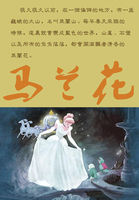"Especially," she replied, in a loud one, "if Gaubertin and you, my love, help him."
"There! didn't I tell you so?" cried Guerbet, poking the justice of the peace."I knew he would find some pretty girl at Socquard's,--
there he is, putting her into his carriage."
"You are quite wrong, gentlemen," said Madame Soudry; "Monsieur Rigou is thinking of nothing but the great affair; and if I'm not mistaken, that girl is only Tonsard's daughter."
"He is like the chemist who lays in a stock of vipers," said old Guerbet.
"One would think you were intimate with Monsieur Vermut to hear you talk," said the doctor, pointing to the little apothecary, who was then crossing the square.
"Poor fellow!" said the poet, who was suspected of occasionally sharpening his wit with Madame Vermut; "just look at that waddle of his! and they say he is learned!"
"Without him," said the justice of the peace, "we should be hard put to it about post-mortems; he found poison in poor Pigeron's stomach so cleverly that the chemists of Paris testified in the court at Auxerre that they couldn't have done better--"
"He didn't find anything at all," said Soudry; "but, as President Gendrin says, it is a good thing to let people suppose that poison will always be found--"
"Madame Pigeron was very wise to leave Auxerre," said Madame Vermut;
"she was silly and wicked both.As if it were necessary to have recourse to drugs to annul a husband! Are not there other ways quite as sure, but innocent, to rid ourselves of that incumbrance? I would like to have a man dare to question my conduct! The worthy Monsieur Vermut doesn't hamper me in the least,--but he has never been ill yet.
As for Madame de Montcornet, just see how she walks about the woods and the hermitage with that journalist whom she brought from Paris at her own expense, and how she pets him under the very eyes of the general!"
"At her own expense!" cried Madame Soudry."Are you sure? If we could only get proof of it, what a fine subject for an anonymous letter to the general!"
"The general!" cried Madame Vermut, "he won't interfere with things;
he plays his part."
"What part, my dear?" asked Madame Soudry.
"Oh! the paternal part."
"If poor little Pigeron had had the wisdom to play it, instead of harassing his wife, he'd be alive now," said the poet.
Madame Soudry leaned over to her neighbor, Monsieur Guerbet, and made one of those apish grimaces which she had inherited from dear mistress, together with her silver, by right of conquest, and twisting her face into a series of them she made him look at Madame Vermut, who was coquetting with the author of "The Cup-and-Ball."
"What shocking style that woman has! what talk, what manners!" she said."I really don't think I can admit her any longer into OUR
SOCIETY,--especially," she added, "when Monsieur Gourdon, the poet, is present."
"There's social morality!" said the abbe, who had heard and observed all without saying a word.
After this epigram, or rather, this satire on the company, so true and so concise that it hit every one, the usual game of boston was proposed.
Is not this a picture of life as it is at all stages of what we agree to call society? Change the style, and you will find that nothing more and nothing less is said in the gilded salons of Paris.















